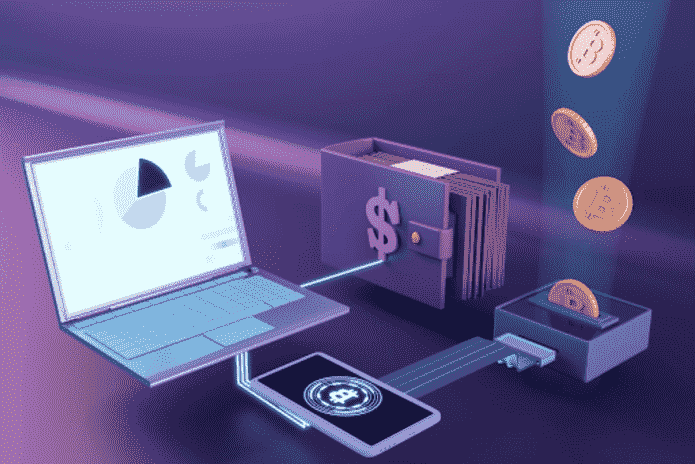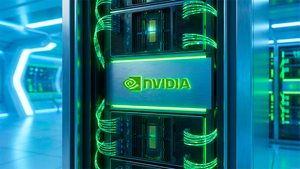
FPS games have long been a favorite genre of gamers. But now, there is an emerging wave of blockchain-enabled games that allow players to earn crypto rewards by playing.
These games offer verifiable ownership of in-game items and allow for the transfer of in-game assets to real-world markets. They are spearheading collective player autonomy in the gaming industry through permissionless marketplaces and sovereign item ownership.
Understanding Crypto FPS Gaming
Several FPS games are powered by blockchain technologies, giving gamers true ownership of their gaming assets. These digital tokens (NFTs) represent virtual game items and characters and can be traded, sold, and redeemed for in-game rewards or cryptocurrency. Some of these games also offer a play-to-earn mechanism wherein players can earn real-world value as they compete in gameplay and events.
One of the more popular crypto FPS gaming projects is The Harvest, a multiplayer sci-fi game where players battle each other to accumulate the most essence in 10 minutes. The gameplay is simple but challenging, and the game offers a competitive environment that can be very rewarding.
Another blockchain-powered FPS is Arsenal, a free-to-play 3D shooter that is reminiscent of Counter-Strike and other e-sports. The game offers PvP and CTF modes, with a focus on team deathmatch. Its gameplay is fast-paced and features NFT weapons, a robust leveling system, and unique NFT utility tokens that can be earned through contests, tournaments, and missions.
In the future, Shrapnel plans to add additional security and anti-cheating technologies from Anybrain, a company best known for its security technology in pro gaming. The company will provide protection for the game executable, which is a critical piece of the game that can prevent cheating and other exploits.
Play-to-Earn Mechanisms in Crypto FPS Gaming
Crypto games are games that use decentralized technology to provide a new gaming experience. Players can play to earn digital assets that they own with provable scarcity and can transfer between games or real-world items. This makes them a great way to test blockchain technology and explore the metaverse.
Most play-to-earn cryptocurrency games require you to have a compatible wallet that can hold the coins that you want to spend on in-game purchases or rewards. Many of these wallets support fiat currency as well, allowing you to get started without having to buy crypto in advance.
Once you’ve got your wallet set up, the rest of the process is easy. Look for games that are free-to-play or offer a low entry cost. Some games even offer tournaments that feature $10K or higher prize pools. This is one of the best ways to make money playing FPS games online.
One popular FPS game with a play-to-earn mechanism is The Harvest. In this sci-fi game, you’ll compete against players from around the world for the Essence of Life, a precious resource. The more essence you collect, the better your chances are of winning. The game also offers NFT spaceships and weapon parts that can be earned by participating in tournaments or by completing missions.
Earning Real-World Value in Crypto FPS Gaming
Many blockchain FPS games offer players the opportunity to earn real-world value by taking part in tournaments and missions. These games also allow players to purchase NFT weapon skins, accessories using EFT Cheats, and body parts that they can then use to improve their weapons and gameplay. Players can also earn utility tokens such as $VIDYA for taking part in special events or killing other players. This type of gameplay is an example of how blockchain technology can be used to create unique, authentic, and highly valuable gaming experiences.
Popular Crypto FPS Games and their Play-to-Earn
In the future, we will likely see more FPS games leveraging blockchain technology to introduce new gameplay features that can benefit players. For instance, FPS games built on the Ethereum network can allow users to earn NFTs for their gaming efforts. In addition, players can also earn shards and coins by completing missions. These tokens can then be used to unlock new weapons and upgrade existing ones.
A good example of a blockchain-enabled FPS game is The Forge Arena. Designed as a potential e-sport, this tactical FPS lets gamers compete for the highest number of kills. It features NFT weapon skins that provide true ownership. Users can earn these weapon skins through contests, tournaments, and mission completions. They can also be traded or slashed for utility tokens such as $SPARKS, $SCRAP, and $BOUNTY.
Arsenal is another popular blockchain-enabled FPS that brings the feel of web2 FPS games such as Counter-Strike to the digital world. The game allows gamers to battle opponents in a variety of PvP games including Free For All, Team Deathmatch, and Capture the Flag. In addition, the game’s play-to-earn mechanism rewards gamers with points and tokens depending on how much they stake in the game’s native crypto, $WELT.
Risks and Challenges in Crypto FPS Gaming
Aside from the risks that come with playing online games, crypto FPS gamers face certain challenges when it comes to play-to-earn mechanisms. First of all, many of these games are still in the early stages and often have bugs and other issues that hinder gameplay. Another challenge is that these games may not use blockchain technology optimally. While blockchain is an excellent tool for recording and verifying transactions, it’s not suitable for registering the sub-second reaction times of players in FPS games.
Fabwelt’s Shrapnel is an upcoming moddable AAA FPS game that’s set to revolutionize the gaming landscape with its innovative gameplay mechanics and strong economy powered by NFTs. The game immerses gamers in a high-stakes world where skill and risk-taking are paramount. It uses a unique blend of gameplay and blockchain technology to allow players to earn real-world rewards through selling, trading, winning, and creating in-game content.
The Bornless is a 1950s-themed FPS game that combines an eerie atmosphere and a roguelike element. The gameplay is fast-paced, and players can earn rewards by collecting Incense tokens from matches, tournaments, raids, and special events. The tokens can be used to unlock weapons and character upgrades. Players can also trade or sell their characters and weapons in the in-game marketplace.
Future of Crypto FPS Gaming and Play-to-Earn
Crypto FPS games are the future of gaming. They offer a unique play-to-earn mechanism that will attract new players and grow the game’s user base as more gamers see the value of in-game items. They also show how blockchain technology can transform gaming by creating a micro-economy and allowing gamers to own their in-game assets.
For example, in the sci-fi FPS game Metaverse, you can design and build your own battle maps and earn NFT tokens by playing the game. You can even collect, trade, and sell NFT weapons and equipment and upgrade them to enhance your performance in missions. In addition, you can also earn NFT loot boxes by completing special challenges or tournaments.
Another promising FPS game on the blockchain is Axie Infinity, which features gameplay similar to Counter-Strike and offers team deathmatch and CTF modes. The game is set in a futuristic world and boasts an NFT-powered weapon economy with real-world value for each unique skin.
Axie Infinity is also one of the few blockchain games that aim to be fully decentralized. This is achieved by using the Lightning network, a peer-to-peer payment protocol, for transactions in the game. In addition, the game uses its native AXS token for community governance, allowing users to vote on major decisions such as the NFT marketplace and the movement of treasury funds.
Featured Image: SKYCheats
Read more investing news on PressReach.com.Subscribe to the PressReach RSS feeds:- Featured News RSS feed
- Investing News RSS feed
- Daily Press Releases RSS feed
- Trading Tips RSS feed
- Investing Videos RSS feed
Follow PressReach on Twitter
Follow PressReach on TikTok
Follow PressReach on Instagram
Subscribe to us on Youtube




